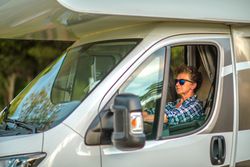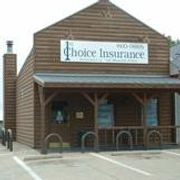
A recreational vehicle (RV) can provide you with many vacations and memories throughout the years. Whether you prefer a luxury motor home or a small camper, you should protect your investment with RV insurance. Below is more information about this coverage so that you can protect your vehicle.
Required RV Coverage
A vehicle that has a motor will always require coverage to protect other drivers on the road. Generally, you must have liability insurance, although the specific amount will depend on the size of your RV. This covers injuries or property damage that other people experience during accidents that the courts deem your fault.
If your RV is one that you tow behind a vehicle, then your regular auto insurance policy should cover it. However, you must tell your insurance provider about the trailer before the coverage will extend to it.
Insurance Plan Options
Essential Coverage
 While you must have liability coverage, you should consider expanding this policy. Generally, this means adding collision coverage for all vehicle damage in an accident, regardless of fault. It will even cover you if have an accident with an uninsured motorist. You should also have comprehensive coverage, which compensates you for damage to the RV due to vandalism, storms, and other non-accident issues.
While you must have liability coverage, you should consider expanding this policy. Generally, this means adding collision coverage for all vehicle damage in an accident, regardless of fault. It will even cover you if have an accident with an uninsured motorist. You should also have comprehensive coverage, which compensates you for damage to the RV due to vandalism, storms, and other non-accident issues.
Additional Coverage
If you use the vehicle often, you may also consider specific riders that apply to your situation. For example, custom equipment protection covers any modifications you make to the RV, such as an awning or new appliance. Personal effects coverage applies to clothes, electronics, and other items that you bring during the journey. Pet coverage pays for veterinary expenses if your pet experiences an injury due to an accident.
Range of Use Options
Look into full-timer’s RV Insurance if you live in the vehicle for more than six months per year. This is an affordable option to add more comprehensive coverage, as it can cover medical payments for those injured inside or close to the RV. It may even cover personal liability for anything you’re responsible for while the vehicle is parked.
If you only use your vehicle to travel occasionally and it spends much of the year in storage, talk with your provider about storage options. This allows you to lower your coverage and rates while you are not using the RV. However, if you drive the vehicle during a period where your provider does not think you are using it, you may not receive compensation in an accident.
When you need reliable RV insurance to protect your investment, contact 1st Choice Insurance in Fairfield, OH. This family-owned and -operated insurance provider will help you find the right coverage for your needs and budget. They specialize in helping you save on insurance even if you are a high-risk driver. Visit them online for more information about their services. Call (513) 860-0666 to request a quote.
About the Business
(177 reviews)
Have a question? Ask the experts!
Send your question

